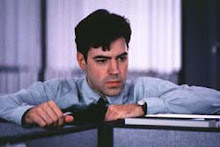I have not heard a simpler explanation for the real health care issue than the excepts from a speech by Dr. Gawande, posted by David Mendosa.
"The deepest struggle of health care is its complexity," he said. "This is the reason why health care often doesn't work. Just half a century ago medicine wasn't either expensive nor effective.
"We have identified now more than 13,600 diagnoses. And for each of them we have identified steps in their care that can reduce people's suffering, if not actually cure their disease. But that arsenal has now accumulated to become more than 6,000 drugs currently that you and I can prescribe and more than 4,000 medical and surgical procedures that we can provide.
"It's incredibly hard. There is no industry in the world that has to provide 13,600 different service lines to every community in the country, let alone the world, and customize it to every customer. It is man's most ambitious endeavor.
"The value it's producing, though, is already excellent. Life expectancy has increased five years since 1960 and nearly all of it has accumulated after the age of 65. It's brought longer lives and later disability, and that has produced its own problems, because during that same time period we have reduced the average retirement age from 67 to 61. Somewhere this is not going to add up (he smiles).
"We are at the point where the volume and complexity of the discoveries we have had in the last century has now exceeded our ability as individuals to delivery optimal care reliably and safely. I think we were fooled by penicillin. It was miraculous for a couple of reasons: number one was the idea that you could treat this incredible range of infectious disease that could never be reliably treated before, and the second thing was that this took only an injection.
"It was that simply. And it led us to imagine that the future of medicine would look like that. There would be an injection for cancer. There would be an injection for heart disease. But it hasn't turned out to be anything like that at all.
"We were fooled into imagining that discovery was the only hard part and that execution would be easy. And that couldn't be further from the truth.
"What's missing is innovations for great care. It's innovations not as we are used to thinking, where we think of drugs and devices as the sole carrier of innovation; it's about systems innovation in health care.
"Making food of higher quality at lower cost was the fundamental question of the 20th century. Now, we are coming to a basic understanding of how we will make better care at lower cost. This is the fundamental issue of the 21th century."
Atul Gawande, M.D. "Beyond Reform: Facing the Complexity of Health Care."





How about the question of how to provide a quality of care that creates a healthy person who doesn't need medication?
ReplyDeleteFor example: The body has it's own tools to fight cancer. It's called vitamin D. You get it from a walk in the sunshine at lunchtime - when you're NOT wearing the Dr. required sun screen.